ALL About Paving Jointing - Online Shop
The pages are designed to provide more information on different aspects of Paving Jointing, including the history of paving jointing (link please Jojo) and the different materials technologies available in the UK.
This includes information and a summary of the characteristics, advantages, disadvantages, and importantly, the limitations of these different materials for bound paving jointing. These paving jointing technologies include:
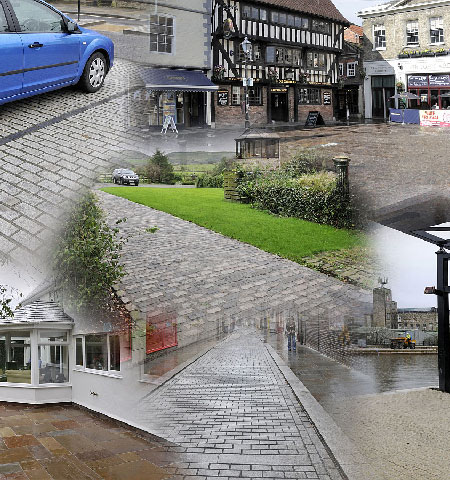
There are also pages with information for jointing so-called ‘Flexible Paving’, which is produced primarily with unbound concrete or stone blocks, which are bedded on compacted sand and butt-jointed These narrow joints (nominal 2-3mm) are simply filled with sand, kiln dried sand is recommended, with or without polymer modification, plus other additives such as a weedkiller. The paved surfaces are then vibrated e.g., with an appropriately named ‘wacker’ plate, to help ensure good compaction into the bedding and consolidation of the jointing sand with minimal voids. Flexible paving is used extensively for large areas of retail parking etc., around edge of town supermarkets etc., as it is permeable, requires less drainage works and is easier to repair and replace if areas subside, or additional services are to be laid with more cables and pipework etc. Unbound, butt-jointed paving can also be used for domestic driveways, especially large ones as the build-up is much cheaper than bound paving due to the reduced substructure and bedding mortar/jointing etc. However, this type of paving generally requires much higher levels of cleaning and maintenance to prevent weed growth and damage from boring insects etc. (e.g. annual or even more frequent applications of toxic weedkillers and pesticides etc.), as well as having a greater risk of subsidence due to the lack of a built-up sub-structure, necessitating refurbishment by re-installation / replacement.
-
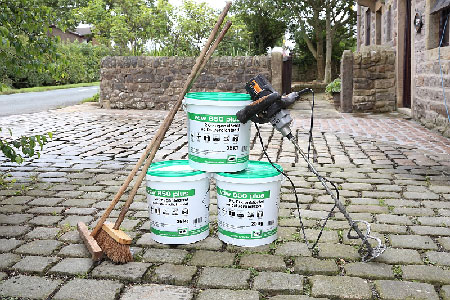
Natural Stone Sett Domestic Driveway Pointing with GftK vdw 850+
-
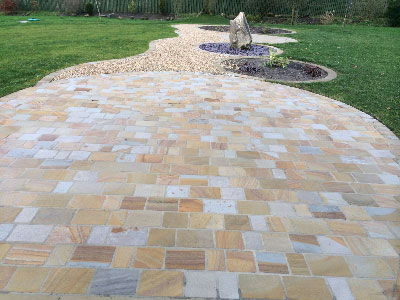
High-end Sandstone Domestic Patio & Pathway Paving – Jointing with 2nd generation, 2-part epoxy - GftK vdw 850+
-
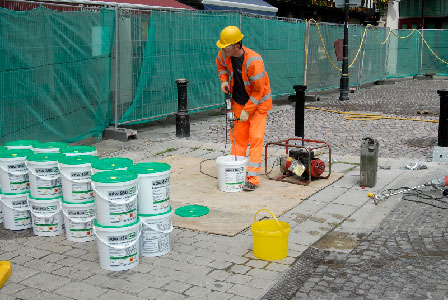
Professional Mixing Station – Porphyry Sett Paving Repointing with GftK vdw 850+
-
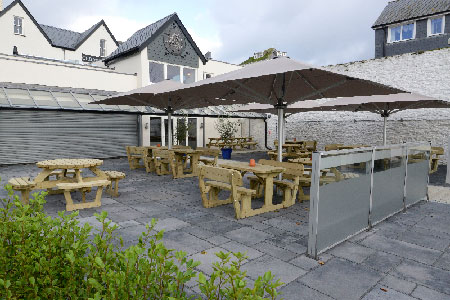
Granite Sets & Black Limestone with vdw 850+ for a Busy Pub/Restaurant Beer Garden
The GftK paving jointing is comprehensive and also includes products based on the best available technologies to fill, and/or seal and improve these narrow sand-filled joints in flexible, unbonded, block paving including:
Paving Jointing Sand - Complete flexible paving jointing products, with a blend of graded kiln dried sand and polymer modifiers to increase resistance to erosion and weed growth.
Paving Jointing Stand Stabilisers An aqueous dispersion for application over the freshly kiln-dried sand filled joints and paved surfaces, to consolidate the surface of the freshly sand-filled joints, and also to penetrate and seal the paving block surfaces themselves, increasing resistance to erosion, weed growth and helping to reduce surface staining.
More information on these material technologies and products is provided on the respective pages of this website, which can be selected from the links in the text above, and/or the tabs on the left of this page.
